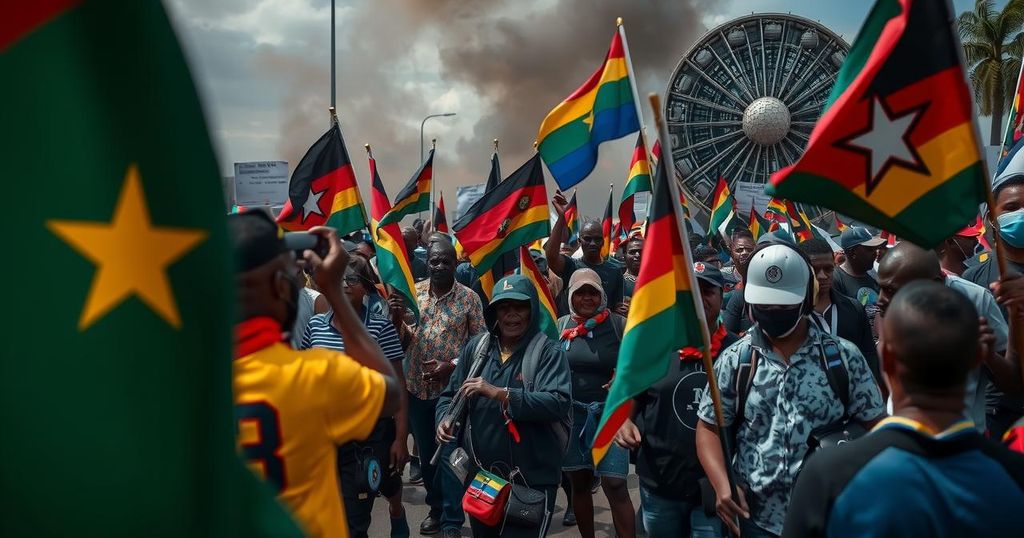Mozambique Bans Protests Amidst Violence Following Disputed Election
Mozambique has banned protests following weeks of unrest linked to a controversial presidential election won by Frelimo. The violence has resulted in numerous deaths and injuries, prompting accusations of terrorism from the government. Opposition leaders claim the elections were rigged, while the government denies these allegations.
Mozambique’s government has imposed a ban on protests after weeks of violence that erupted following a controversial presidential election, which was won by the ruling Frelimo party. The unrest has led to numerous casualties, with reports indicating at least 18 fatalities, according to Human Rights Watch. The Interior Minister, Pascoal Ronda, has labeled these demonstrations as “acts of terrorism,” urging the public to cooperate with authorities to quell the unrest. The protests ignited in the capital city of Maputo after the official announcement that Frelimo’s candidate, Daniel Chapo, secured over 71% of the votes. Opposition leader Venâncio Mondlane, who garnered 20% of the votes, expressed fears for his safety and went into hiding following the murder of his aide and lawyer while they were preparing to contest the election results. Recently, soldiers were dispatched to maintain order amid the largest protests since the violence began on October 9. In response to the escalating chaos, police utilized tear gas and rubber bullets against thousands of demonstrators who erected barricades and set fires. Minister Ronda emphasized the severity of the situation, claiming that these acts deprive citizens of their peace and livelihood. He accused the protest organizers of exploiting vulnerable youth to carry out acts of destabilization. Additionally, authorities have restricted internet access nationwide, which Human Rights Watch sees as a tactic to suppress dissent against the government. Opposition parties and election monitors have decried the elections as unfair and fraudulent, allegations that the government has firmly rejected.
The current unrest in Mozambique stems from the recent presidential election, marked by significant controversy and allegations of electoral fraud. Frelimo, the ruling party since the nation’s independence in 1975, has faced accusations from opposition parties that the electoral process was manipulated to ensure their continuing grip on power. The violence following the election highlights broader societal tensions and frustrations regarding governance and political representation in Mozambique.
In summary, Mozambique’s government has enacted a protest ban in response to violent unrest following a disputed presidential election won by the ruling Frelimo party. The Interior Minister has condemned the protests as acts of terrorism while the opposition alleges electoral fraud. The situation underscores ongoing political instability and challenges regarding the country’s democratic processes.
Original Source: www.bbc.com




Post Comment